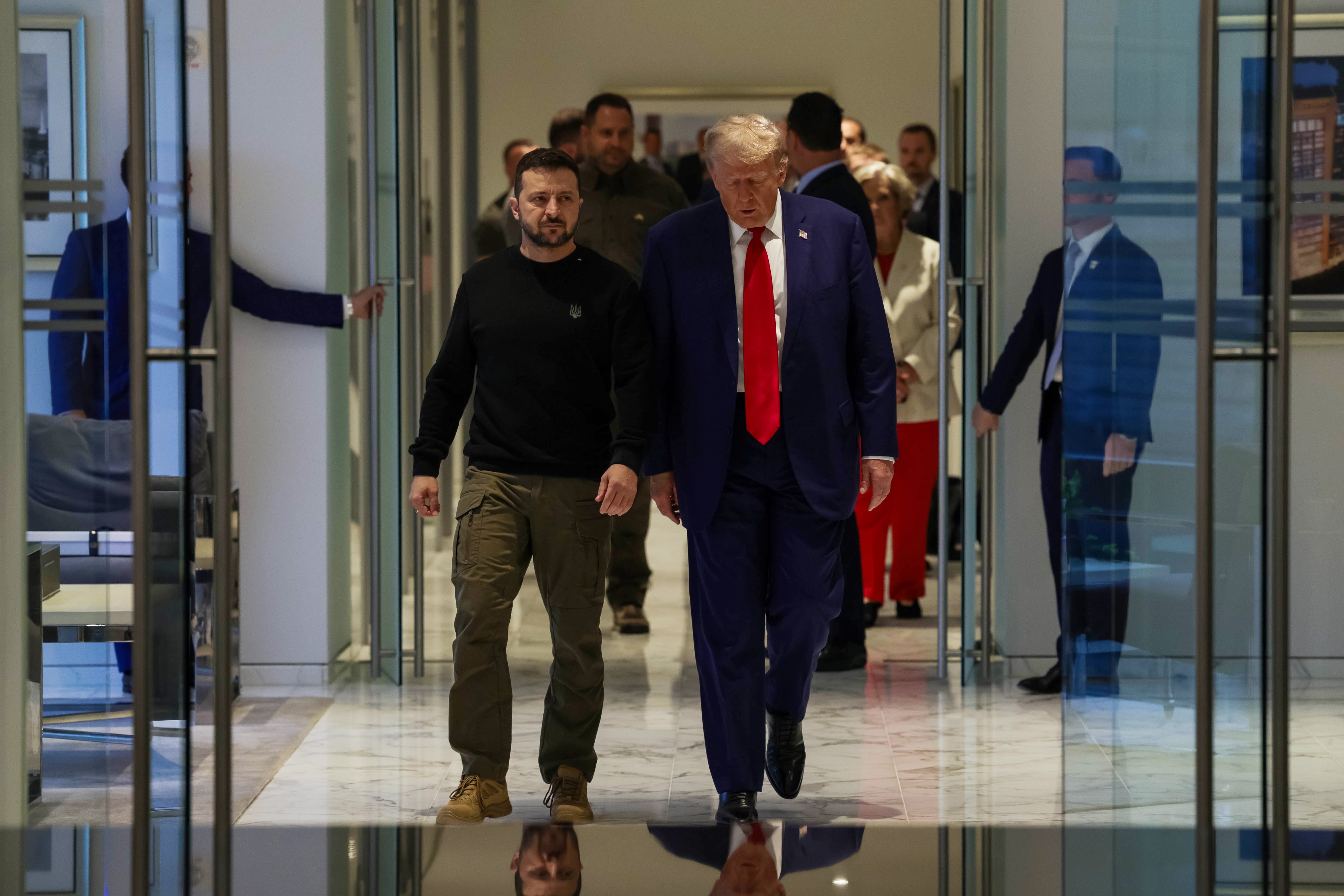The incoming US president Donald Trump could risk violating international law – as well as sending a “chilling” message to aggressors around the world – if he forces Ukraine to give up territory as part of a peace deal with Russia, human rights lawyers have warned.
What to do about Ukraine will be one of the most pressing questions facing Mr Trump when he returns to the White House on Monday, having promised to end the war in a day. His campaign advisers are already slowly backtracking from that particular promise.
On Wednesday, Russia showed the first signs of warming up to the Republican leader and convicted felon, praising his remarks about the crisis in Europe and saying Moscow is ready for talks with Mr Trump.
Ukraine and its allies fear Mr Trump will want to force a quick peace deal by making Kyiv give up some or all of the territory it has lost since being invaded by Russia in February 2022.
On Sunday, Mr Trump’s national security adviser Mike Waltz said that the president-elect has acknowledged the “reality” of Ukraine’s position.
“I just don’t think it’s realistic to say we’re going to expel every Russian from every inch of Ukrainian soil, even Crimea. President Trump has acknowledged that reality, and I think it’s been a huge step forward that the entire world is acknowledging that reality. Now let’s move forward,” he said.
If Trump forces Ukraine into conceding territory, “even if aimed at peace and bringing an end to Russia’s illegal aggression”, it will amount to fundamental violation of international law, says Wayne Jordash KC, president of international human rights firm Global Rights Compliance, headquartered at The Hague.
“It would undermine the prohibition of force in international law and send a chilling signal to aggressors everywhere: violations of the UN Charter, war crimes and atrocities are useful instruments to achieve territorial gains,” he said.

Conceding Ukrainian territory under duress is not just a political compromise, the international lawyer pointed out. “It’s a direct assault on the post-Second World War international legal order and any such deal would enshrine aggression as a legitimate way to redraw borders and decades of principles designed to ensure the rule of law and global stability,” he told The Independent.
On Tuesday, Russian foreign minister Sergei Lavrov praised comments made by Mr Trump earlier this month in which he said that Nato’s plans to open its doors to Ukraine had led to Russia’s invasion of Ukraine.
Mr Trump said Russia had it “written in stone” that Ukraine should never be allowed to join Nato, but the Biden administration had sought to expand the military alliance to Russia’s doorstep. Mr Trump noted: “I could understand their feelings about that.”
The president-elect has repeatedly criticised US spending on military aid for Ukraine under Joe Biden, calling Volodymyr Zelensky the “greatest salesman” for his ability to secure international backers. He has also specifically condemned Mr Biden’s decision to allow Ukraine to use long-range US missiles to strike inside Russia.
If the US turns its back on Ukraine under the new administration it would endanger the legal order that safeguards sovereign nations, said Maksym Vishchyk, a legal adviser at GRC.
“Supporting Ukraine is not just a matter of policy; it is a legal and moral imperative to protect the foundations of a stable and just world order for generations to come,” he said.
Source: independent.co.uk



